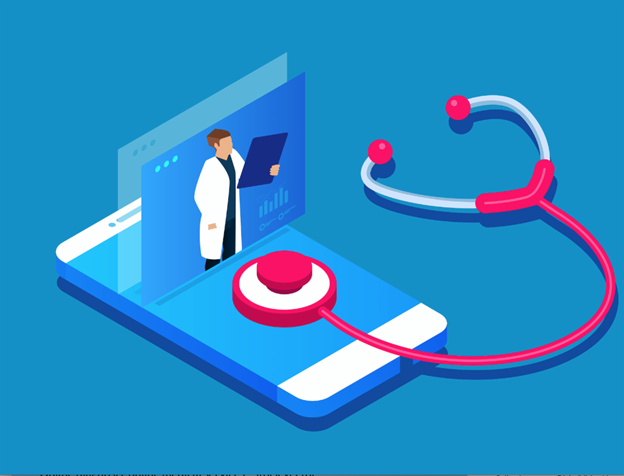
NJMS Integrates 'Tele' Across Undergraduate Medical Education
In the setting of the COVID-19 pandemic, health care delivery changed quickly and dramatically with telemedicine becoming an essential and vital component of health care. Here, Dr. Christin Traba, associate dean for education, and Dr. Sophia Chen, assistant dean for pre-clerkship education, explain how this has impacted students at NJMS.
"As we transitioned the medical school curriculum to distance learning, we discovered the need to implement a pedagogy to teach students clinical skills and uncovered a gap in the curriculum on teaching telehealth," Chen and Traba explained. "Therefore, TeleOSCEs were developed and implemented in Year 1 and Year 3 curriculum to provide students an opportunity to interact with standardized patients similar to a telemedicine encounter."
In Year 1, standardized patients were trained to simulate as real patients and interact with the students through a telemedicine encounter. They provided immediate feedback to students on their history taking, differential diagnosis, communication, and counseling skills as part of the formative assessment. In Year 3, as part of a clinical reasoning elective, residents were trained as standardized patients.
Residents provided immediate feedback to the students with an increased emphasis on the differential diagnosis, counseling, and management plan. Feedback from sessions were positive from standardized patients, residents, and students.
As part of the COVID-19 pandemic course administered to students before they returned to clinical rotations, all rising third and fourth-year students participated in a telemedicine small group case-based discussion.
This case-based discussion highlighted the clinical presentation of COVID-19, appropriate use of telemedicine versus in-person visits, components of the physical exam that can be completed virtually, and barriers and challenges in relation to social determinants of health. Additionally, the ambulatory primary care clerkship converted its teaching OSCE to telemedicine visits as well as reinforcing these key skills.
"We are excited to have received the RBHS Innovations in Education grant to expand this telemedicine curriculum," Traba and Chen added.
To learn more about changes to the curriculum as a result of the COVID-19 pandemic, contact the Office of Education at NJMS by clicking here.
